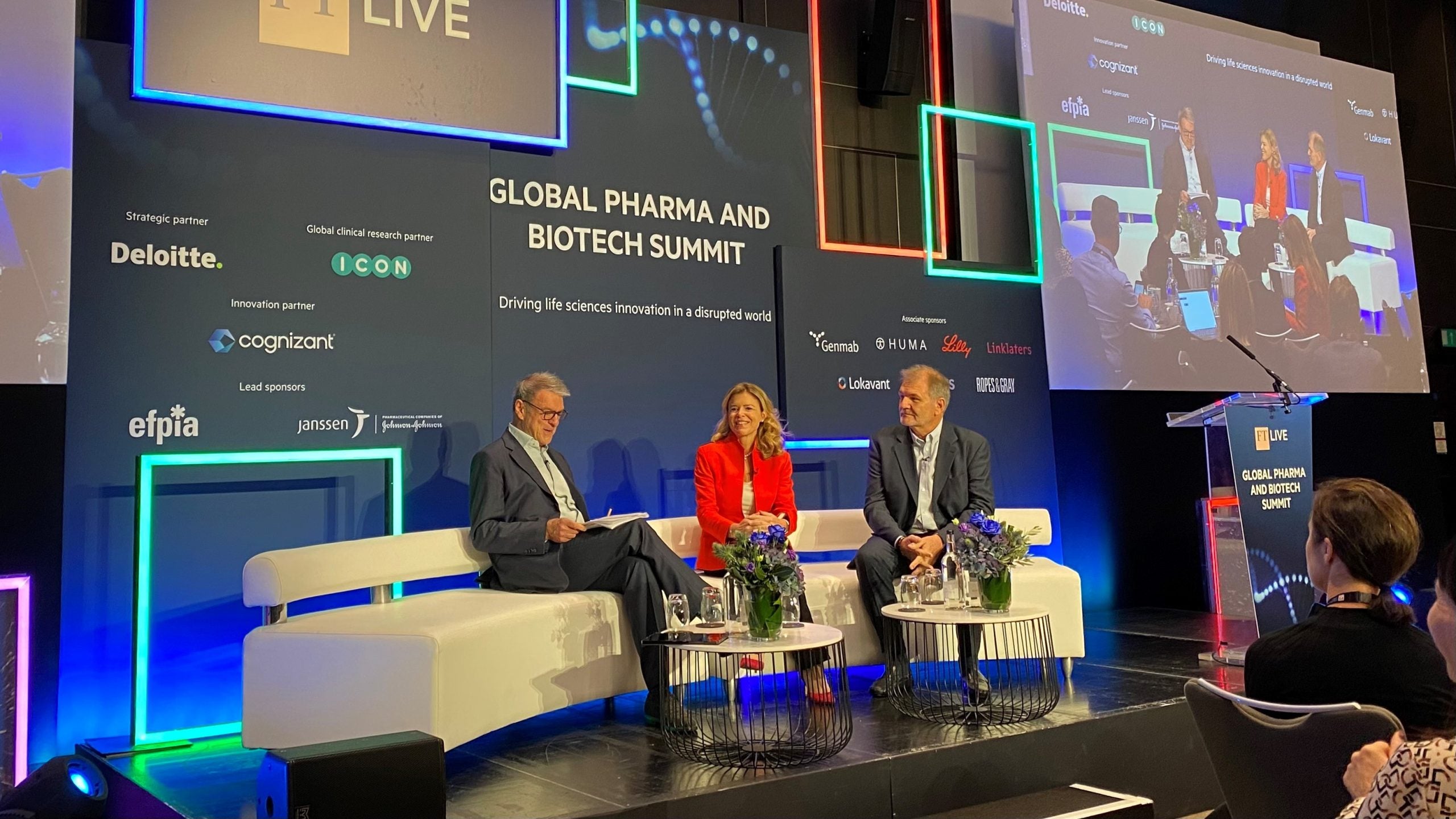
Europe is currently at an inflection point in becoming a less attractive region for life sciences, says Nathalie Moll, director general of the European Federation of Pharmaceutical Industries and Associations (EFPIA).
Moll says that the current version of the EU Pharmaceutical Legislation, which was released in April, will exacerbate the downward trend.

Discover B2B Marketing That Performs
Combine business intelligence and editorial excellence to reach engaged professionals across 36 leading media platforms.
“We need to make sure that Europe goes back on the map,” she notes.
EU pharma reform became a resurfacing topic on the second day of the FT Global Pharma and Biotech Summit in London, UK. On the first day, a panel of industry experts spoke about how the legislation may bring more harm than good.
To make Europe more attractive, there needs to be a larger financial ecosystem, especially for biotech companies, says Jacky Vonderscher, CEO at ENYO Pharma. Talking at the session: ‘Dialogue: Forging the Future of Pharma Innovation in Europe’, Vonderscher notes that for small companies such as ENYO, financing is a crucial focal point.
This is now challenged by the legislation, as companies need to launch their drugs across all EU countries in two years. Vonderscher says that such requirements are especially difficult for smaller companies with a pipeline in rare diseases. He explains that such sponsors may not have enough patients across Europe to retain drug exclusivity.

US Tariffs are shifting - will you react or anticipate?
Don’t let policy changes catch you off guard. Stay proactive with real-time data and expert analysis.
By GlobalDataIn addition, drugs enter each member state at a different time, as some countries may not afford the medication. This, again, makes it more challenging for companies to launch their drugs across all 27 countries, Moll says.
“I want Europe in a trend of going up in attractiveness and ecosystem vibrancy, while patients have access to medicines,” she notes.
Another barrier that sponsors face is drug approval times. Moll explains that approval times by the European Medicines Agency (EMA) are two years longer compared to the US Food and Drug Administration (FDA).
However, both agencies cannot be compared to each other as EMA is made up of 27 countries. While it is always going to take longer, Moll hopes that new technological applications in EMA’s approval will make it more attractive for companies to come to Europe.
Bureaucracy also came up during the dialogue. Moll says that during the Covid-19 pandemic, it became obvious that countries do not have operable patient data systems, even at the regional level. Vonderscher notes that it is all about bureaucracy, and there is a tendency to impose rules, even when a small minority is misusing it.
“We need more integration to cope with bureaucracy,” Vonderscher said when closing the discussion.





